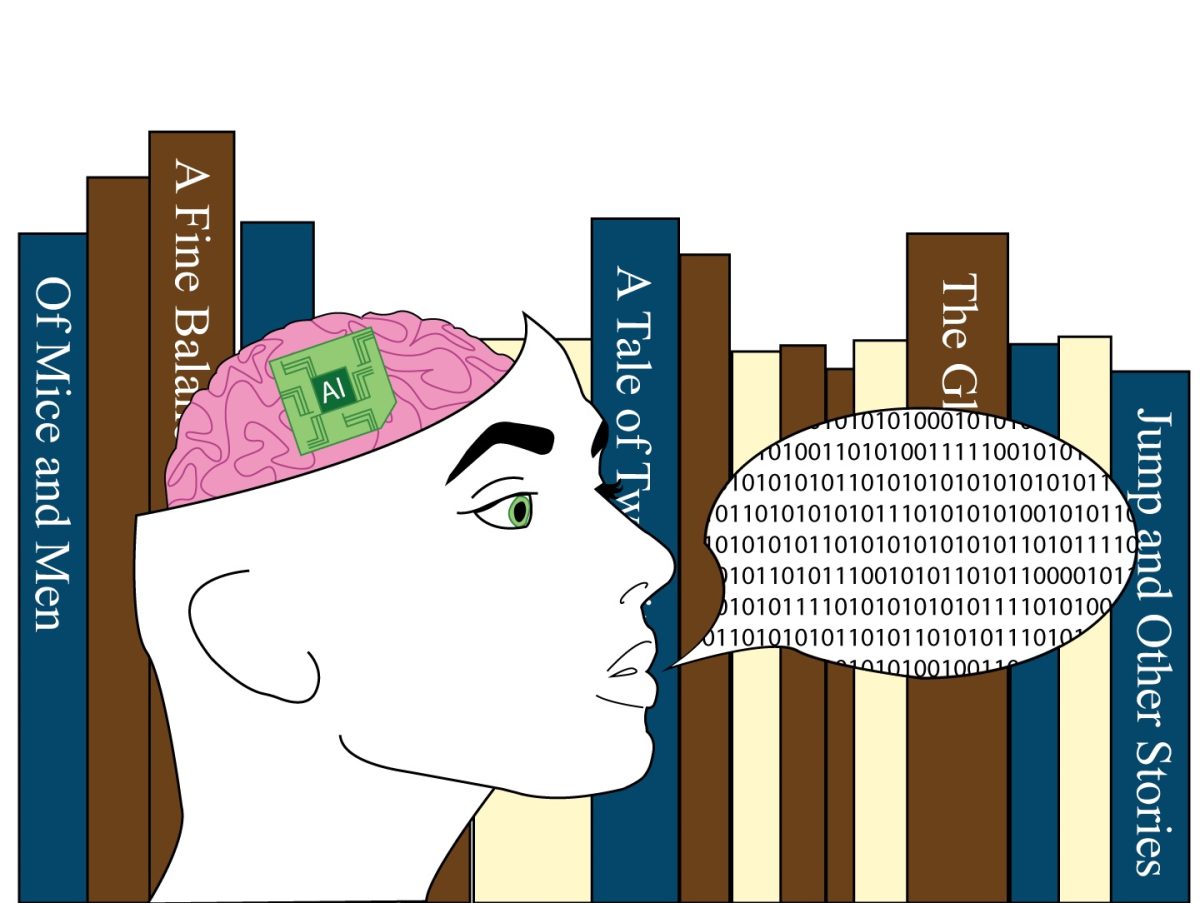If, like me, you gave a cursory glance at your emails in the last month or so, you would have seen a survey from San Diego State University’s Information Technology Division inquiring about “AI in the classroom.” It’s especially apparent with AI’s popularity in the last year, that it is here, and it’s here to stay.
Whether it’s the infamous ChatGPT or a number of other generative AI, you’ve definitely heard about at least one of these programs. In even greater likelihood, you may know someone personally who has used it. Perhaps even you yourself have done so.
I have no doubt that in the STEM fields, AI has proved to be a necessary tool to further the means of an objective pursuit of knowledge. It is perfectly adequate to have AI as a tool in the classroom for computer scientists, engineers, mathematicians, statisticians, and all STEM majors alike. The disciplines are there as a way to expand reasoning and grasp what was previously unreal.
On the other hand, the goal of the humanities should obviously lie in a creative product — an expression of some parts of the human condition. For this, I find AI’s role enabling laziness rather than achieving creative expression.
Of course, creative processes exist in other fields outside the humanities. However, the humanities are particularly susceptible to the negative aspects of AI. The function of AI lacks the human perspective that the humanities is based on.
As David Foster Wallace put it in his “This is Water” speech, “(a) liberal arts education is not so much about filling you up with knowledge as it is about ‘teaching you how to think.’”
Imagine a Nobel prize winner for rocket science laying claim to some assistance with AI alongside an author for a prize in literature whose work credits ChatGPT in the liner notes. The author would be decidedly met with more scorn and derision.
I’m not saying with the prior example that this difference is an injustice; it is a matter-of-fact observation highlighting a philosophical distinction our culture holds between the disciplines.
The mentality of using AI presents itself, at least in these creative spheres, as a gross favoritism of quantity over quality. We see that now in the recently-resolved writers’ strike, where boardroom executives were considering using AI to replace screenwriters.
AI’s most fervent supporters prioritize generative machines over the inefficient lecturer. For example, burgeoning technology displays historical avatars like Plato, presenting their ideas in watered-down, text-to-video formats to appease the younger TikTok-addled generation. Rapidly declining attention spans are seen as marketing opportunities, rather than a gross reduction in the cognitive abilities of students.
Why support a tutor or engage with your school’s own resources when you can consult an AI online? Why bother engaging with your own comprehension of a particular subject for a paper when ChatGPT can spit it out hot off the press for submission? Why bother with the intimacy of mentorship with a professor when all the answers clearly lie in the regurgitating gullet of AI? Why do the work, when AI can do it “for” you?
We are in a bureaucratic hell of educational standards where students are discouraged from doing their own work for the majors they signed up for. I can understand some defiance to the various required GEs that a student may have absolutely zero interest in. But, college is the average person’s first great exposure to all things included in life and the world.
If college were to be only the job skills, preparations, and qualifications — merely a position to be handed off at the graduation date, and nothing more — would not we retitle this expectation as a failure to know what vocational training is?
If college were only a means to make money, a significant majority of the majors being offered would be wiped away for not possessing lucrative goals. College is, and has always been, a way for people to become well-rounded and well-adjusted. A way to pursue not just what interests you, but what may or “may” interest you.
For many, it’s the first time they’ve experienced living somewhere other than home — a great chance to meet not just new people, but new types of people. It is a way to engage with new concepts they’d otherwise never be able to do, much less be encouraged to do on their own.
When the climb toward a meaningful education is reduced to the goal of a substantive paycheck, all steps irrespective of capital gains will diminish over time. AI’s ability to ease the mundanity of the process can never account for accurately depicting human expression or character.








